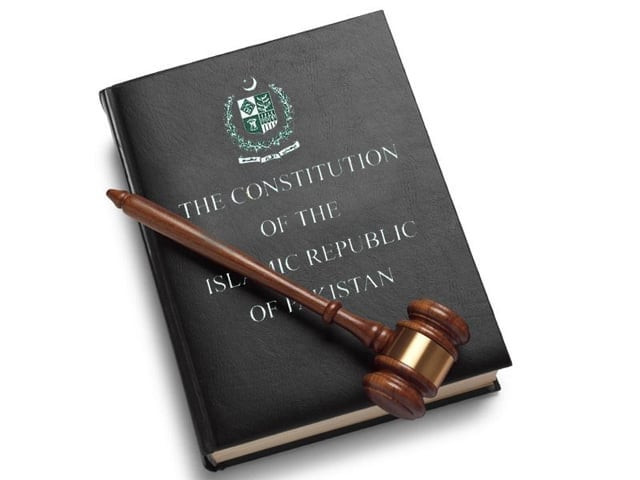'Plenty of time for constitutional benches'
Both Punjab and K-P governments maintain cordial ties with their high courts

Much like the Khyber-Pakhtunkhwa (K-P) government, Punjab seems least interested in bringing a resolution after the 26th Constitutional Amendment to its provincial assembly and forming constitutional benches in the Lahore High Court.
A senior Punjab official has told The Express Tribune that his government is not interested, thus far at least, in establishing constitutional benches. It has been learned that the provincial government is satisfied with the functioning of the LHC.
Unlike in the past, the relationship between the Punjab government and incumbent LHC Chief Justice Alia Neelum is not tense. After the elevation of Justice Malik Shahzad Ahmad Khan to the Supreme Court, Anti Terrorism Courts (ATCs) judges have already been transferred by THE incumbent LHC CJ. By the same token, the Punjab government has not been at loggerheads with its chief justice on any matter. There is also the perception that those judges with a background in criminal law are in the driving seat at the LHC.
However, a senior government official in Punjab states that the provincial government has strong reservations over an interim order in which the Punjab government has been restrained from using its powers, under Section 3 of the Punjab Detention Act, 1960, for one month.
Section 3 of the Punjab Detention Act grants the provincial government, or authorised officials, the power to detain individuals if they threaten public order, security, or public peace.
Meanwhile, the K-P government is also not interested in tabling a resolution to form constitutional benches at the Peshawar High Court. Currently, only the Sindh Assembly has passed a resolution to establish constitutional benches at the Sindh High Court.
The Judicial Commission of Pakistan (JCP) had already unanimously resolved to nominate SHC judges for Supreme Court constitutional benches until November 24. Pakistan Peoples Party seems keen on establishing constitutional benches in provincial high courts.
After the 26th Constitutional Amendment, the executive's influence has increased when it comes to appointing judges to superior courts judges. It has been learned that different political functionaries have started working towards inducting their preferred candidates.
The biggest challenge for the judiciary remains in appointing independent judges after the 26th Amendment.
Dozens of judge seats are vacant in each superior court. The number of SC judges has also increased from 17 to 34 and the government wants to appoint two from each province.
A PML-N lawyer claims that the increase of SC judges, and the reduction of the age limit from 45 to 40 years for a high court judge, have been done on PPP's wishes.



















COMMENTS
Comments are moderated and generally will be posted if they are on-topic and not abusive.
For more information, please see our Comments FAQ